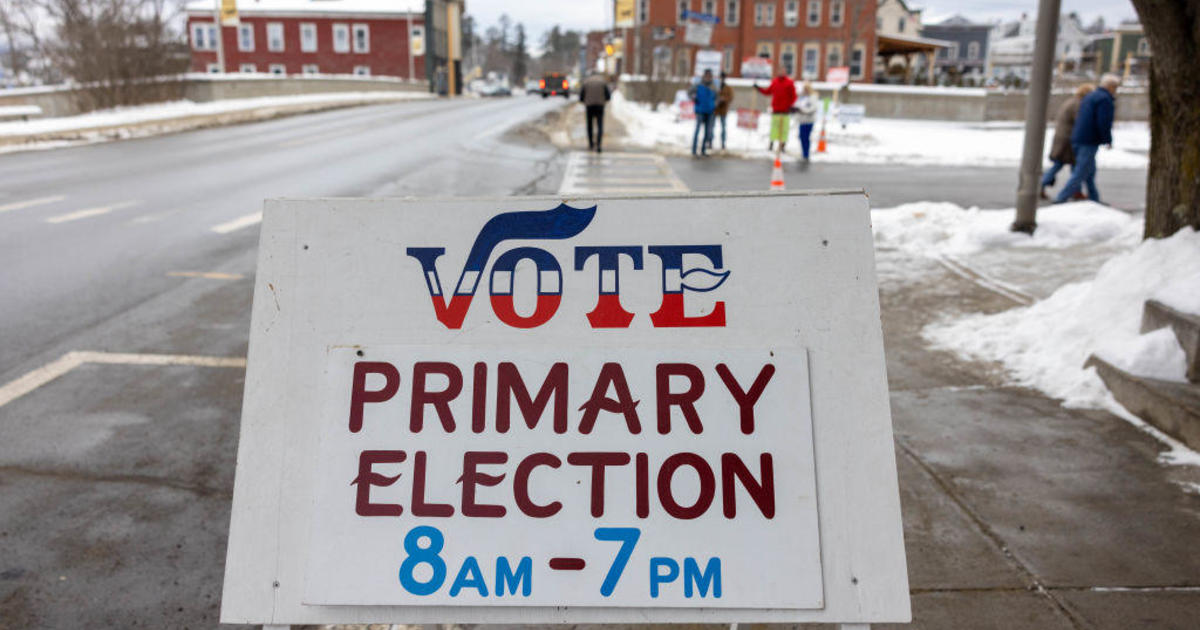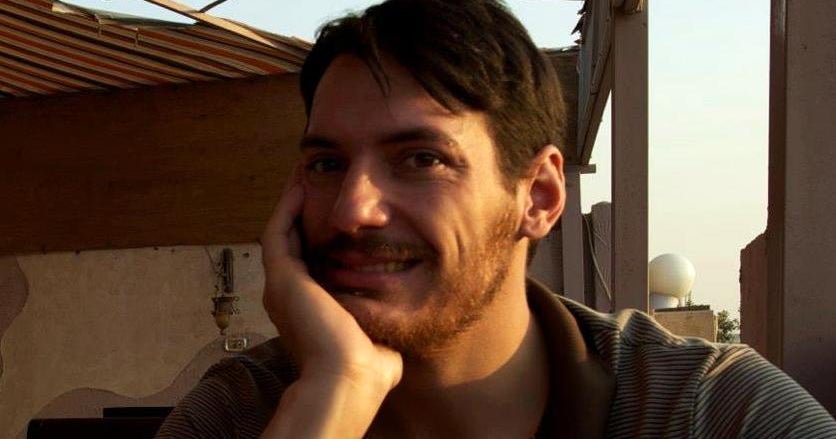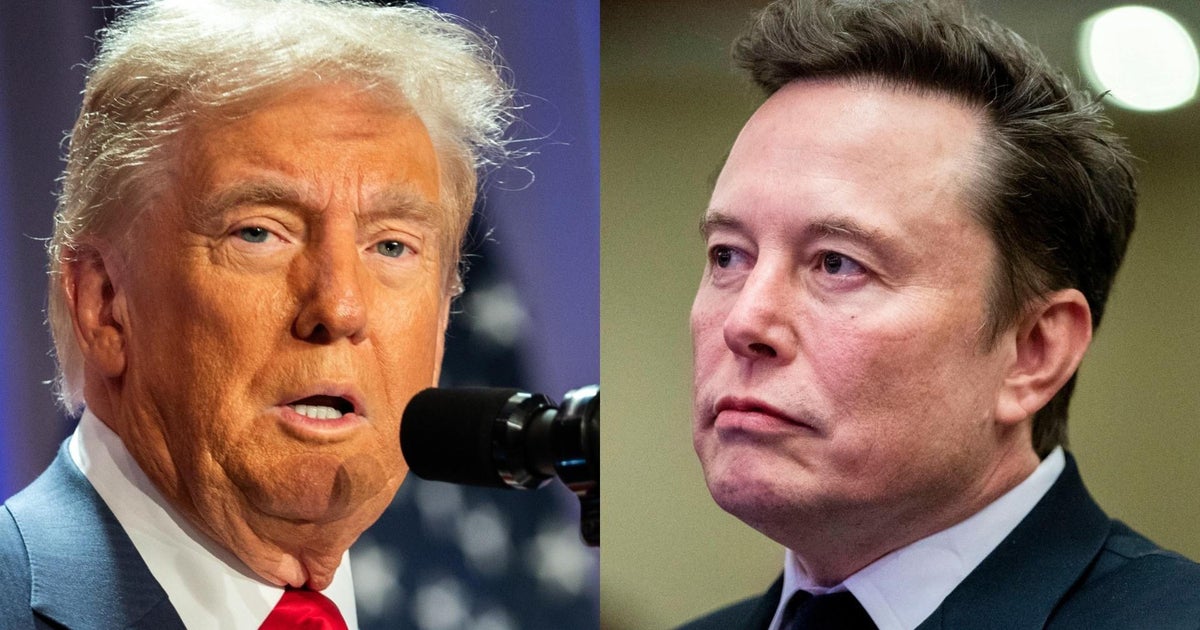CBS News
When is the next primary after New Hampshire? Here are the dates for upcoming 2024 Republican elections

Washington — Voters in New Hampshire are going to the polls on Tuesday to make their choice for the 2024 GOP presidential nomination, casting their ballots in the first-in-the-nation primary as the field has narrowed once again.
The nominating process kicked off last week with the Iowa caucuses, where former President Donald Trump soundly defeated Florida Gov. Ron DeSantis and former U.N. Ambassador Nikki Haley. DeSantis dropped out of the race on Sunday and endorsed Trump, leaving Haley as the sole challenger to the GOP front-runner.
After New Hampshire, presidential candidates face a steady procession of primaries and caucuses leading up to the Republican National Convention in July, when the party’s delegates will officially select their nominee. Here’s what comes next after the Granite State:
What are the Republican primaries after New Hampshire?
Haley has vowed to remain in the race regardless of the outcome in New Hampshire. Assuming she does, the campaigns will shift their focus to the upcoming states, with South Carolina the next major prize.
Nevada and the Virgin Islands are technically the next contests on the calendar, but a quirk in Nevada’s selection process and the small number of delegates at stake in the Virgin Islands lessens their impact. Nevada is holding dueling nominating contests: a state-run primary on Feb. 6, and party-run caucuses on Feb. 8. Delegates to the GOP convention will only be awarded based on the caucuses. Haley and Trump will also not be competing head-to-head: Haley is on the ballot for the primary but not the caucuses, and Trump is on the ballot in the caucuses but not the primary.
The next major showdown would therefore be on Feb. 24 in South Carolina, where Haley served as governor from 2011 to 2017. Despite voters’ familiarity with Haley, the state’s conservative primary electorate is expected to be highly favorable to Trump. Michigan will hold its primary three days later, on Feb. 27.
From there, the race goes national, with Super Tuesday on March 5. Trump is hoping to have the nomination locked up by then, when the largest number of states and U.S. territories hold their primaries and caucuses. Delegates will be up for grabs in Alabama, Alaska, American Samoa, Arkansas, California, Colorado, Maine, Massachusetts, Minnesota, North Carolina, Oklahoma, Tennessee, Texas, Utah, Vermont and Virginia.
The full 2024 Republican primary calendar
Jan. 15: Iowa caucuses
Jan. 23: New Hampshire primary
Feb. 6: Nevada primary (no delegates awarded)
Feb. 8: Nevada caucuses; Virgin Islands caucuses
Feb. 24: South Carolina primary
Feb. 27: Michigan primary
March 2: Idaho caucuses; Missouri caucuses; Michigan state convention (remaining delegates are awarded)
March 3: Washington, D.C., primary
March 4: North Dakota caucuses
March 5: Alabama primary; Alaska caucuses; American Samoa caucuses; Arkansas primary; California primary; Colorado primary; Maine primary; Massachusetts primary; Minnesota primary; North Carolina primary; Oklahoma primary; Tennessee primary; Texas primary; Utah caucuses; Vermont primary; Virginia primary
March 12: Georgia primary; Hawaii caucuses; Mississippi primary; Washington primary
March 15: Northern Mariana caucuses
March 16: Guam caucuses
March 19: Arizona primary; Florida primary; Illinois primary; Kansas primary; Ohio primary
March 23: Louisiana primary
April 2: Connecticut primary; Delaware primary; New York primary; Rhode Island primary; Wisconsin primary
April 20: Wyoming caucuses
April 21: Puerto Rico primary
April 23: Pennsylvania primary
May 7: Indiana primary
May 14: Maryland primary; Nebraska primary; West Virginia primary
May 21: Kentucky primary; Oregon primary
June 4: Montana primary; New Jersey primary; New Mexico primary; South Dakota primary
CBS News
Biden’s top hostage envoy Roger Carstens in Syria to ask for help in finding Austin Tice

Roger Carstens, the Biden administration’s top official for freeing Americans held overseas, on Friday arrived in Damascus, Syria, for a high-risk mission: making the first known face-to-face contact with the caretaker government and asking for help finding missing American journalist Austin Tice.
Tice was kidnapped in Syria 12 years ago during the civil war and brutal reign of now-deposed Syrian dictator Bashar al-Assad. For years, U.S. officials have said they do not know with certainty whether Tice is still alive, where he is being held or by whom.
The State Department’s top diplomat for the Middle East, Barbara Leaf, assistant secretary of state for Near Eastern Affairs, accompanied Carstens to Damascus as a gesture of broader outreach to Hay’at Tahrir al-Sham, known as HTS, the rebel group that recently overthrew Assad’s regime and is emerging as a leading power.
Near East Senior Adviser Daniel Rubinstein was also with the delegation. They are the first American diplomats to visit Damascus in over a decade, according to a State Department spokesperson.
They plan to meet with HTS representatives to discuss transition principles endorsed by the U.S. and regional partners in Aqaba, Jordan, the spokesperson said. Secretary of State Antony Blinken traveled to Aqaba last week to meet with Middle East leaders and discuss the situation in Syria.
While finding and freeing Tice and other American citizens who disappeared under the Assad regime is the ultimate goal, U.S. officials are downplaying expectations of a breakthrough on this trip. Multiple sources told CBS News that Carstens and Leaf’s intent is to convey U.S. interests to senior HTS leaders, and learn anything they can about Tice.
Rubinstein will lead the U.S. diplomacy in Syria, engaging directly with the Syrian people and key parties in Syria, the State Department spokesperson added.
Diplomatic outreach to HTS comes in a volatile, war-torn region at an uncertain moment. Two sources even compared the potential danger to the expeditionary diplomacy practiced by the late U.S. Ambassador Christopher Stevens, who led outreach to rebels in Benghazi, Libya, in 2012 and was killed in a terrorist attack on a U.S. diplomatic compound and intelligence post.
U.S. special operations forces known as JSOC provided security for the delegation as they traveled by vehicle across the Jordanian border and on the road to Damascus. The convoy was given assurances by HTS that it would be granted safe passage while in Syria, but there remains a threat of attacks by other terrorist groups, including ISIS.
CBS News withheld publication of this story for security concerns at the State Department’s request.
Sending high-level American diplomats to Damascus represents a significant step in reopening U.S.-Syria relations following the fall of the Assad regime less than two weeks ago. Operations at the U.S. embassy in Damascus have been suspended since 2012, shortly after the Assad regime brutally repressed an uprising that became a 14-year civil war and spawned 13 million Syrians to flee the country in one of the largest humanitarian disasters in the world.
The U.S. formally designated HTS, which had ties to al Qaeda, as a foreign terrorist organization in 2018. Its leader, Mohammed al Jolani, was designated as a terrorist by the US in 2013 and prior to that served time in a US prison in Iraq.
Since toppling Assad, HTS has publicly signaled interest in a new more moderate trajectory. Al Jolani even shed his nom de guerre and now uses his legal name, Ahmed al-Sharaa.
U.S. sanctions on HTS linked to those terrorist designations complicate outreach somewhat, but they haven’t prevented American officials from making direct contact with HTS at the direction of President Biden. Blinken recently confirmed that U.S. officials were in touch with HTS representatives prior to Carstens and Leaf’s visit.
“We’ve heard positive statements coming from Mr. Jolani, the leader of HTS,” Blinken told Bloomberg News on Thursday. “But what everyone is focused on is what’s actually happening on the ground, what are they doing? Are they working to build a transition in Syria that brings everyone in?”
In that same interview, Blinken also seemed to dangle the possibility that the U.S. could help lift sanctions on HTS and its leader imposed by the United Nations, if HTS builds what he called an inclusive nonsectarian government and eventually holds elections. The Biden administration is not expected to lift the U.S. terrorist designation before the end of the president’s term on January 20th.
Pentagon spokesperson Pat Ryder disclosed Thursday that the U.S. currently has approximately 2,000 US troops inside of Syria as part of the mission to defeat ISIS, a far higher number than the 900 troops the Biden administration had previously acknowledged. There are at least five U.S. military bases in the north and south of the country.
The Biden administration is concerned that thousands of ISIS prisoners held at a camp known as al-Hol could be freed. It is currently guarded by the Syrian Democratic forces, Kurdish allies of the U.S. who are wary of the newly-powerful HTS. The situation on the ground is rapidly changing since Russia and Iran withdrew military support from the Assad regime, which has reset the balance of power. Turkey, which has been a sometimes problematic U.S. ally, has been a conduit to HTS and is emerging as a power broker.
A high-risk mission like this is unusual for the typically risk averse Biden administration, which has exercised consistently restrained diplomacy. Blinken approved Carstens and Leaf’s trip and relevant congressional leaders were briefed on it days ago.
“I think it’s important to have direct communication, it’s important to speak as clearly as possible, to listen, to make sure that we understand as best we can where they’re going and where they want to go,” Blinken said Thursday.
At a news conference in Moscow Thursday, Russian President Vladimir Putin said he had not yet met with Assad, who fled to Russia when his regime fell earlier this month. Putin added that he would ask Assad about Austin Tice when they do meet.
Tice, a Marine Corps veteran, worked for multiple news organizations including CBS News.
CBS News
12/19: CBS Evening News – CBS News

Watch CBS News
Be the first to know
Get browser notifications for breaking news, live events, and exclusive reporting.
CBS News
Delivering Tomorrow: talabat’s Evolution in the Middle East

Watch CBS News
Be the first to know
Get browser notifications for breaking news, live events, and exclusive reporting.








